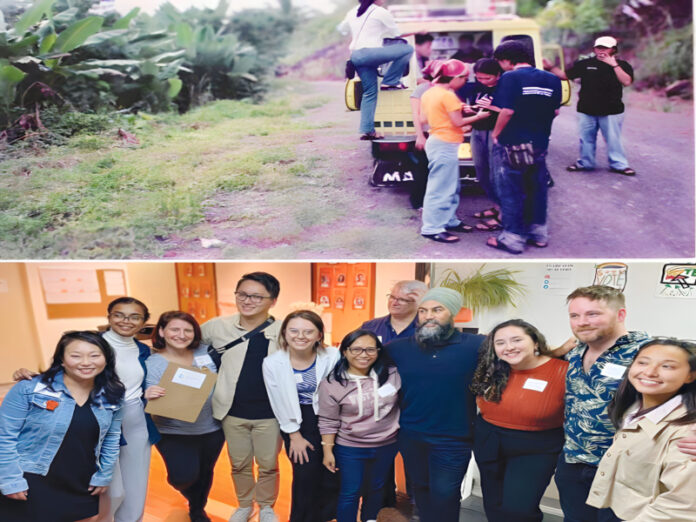Growing older, for me, means finding the essence of community, volunteerism, and activism have never been more crucial. For many, these values are not mere concepts but threads that weave the fabric of human experience. This is particularly true for those like me whose consciousness has been shaped by the realizations of the Philippines’ oppressed and poorest, to the vibrant streets of Manila, to the tranquil yet complex environment of British Columbia. My story, rooted in the principles learned as Iskolar ng Bayan, explains how the call to serve others can transcend boundaries, shaping bonds of solidarity and understanding that echo deeply in our globalized society.
Upon graduating from the University of the Philippines, I was imbued with the spirit of activism. The university is a bastion of critical thought and social awareness, where shifts and change are seeded and nurtured. My education taught me not only to question the status quo but also to engage with it. I volunteered with grassroots organizations, immersing myself in the realities faced by marginalized communities. Those experiences infused an overwhelming sense of responsibility toward my fellow Filipinos and humanity.
The Philippines, rich in culture yet marred by socio-economic challenges, provided the perfect backdrop for my burgeoning progressive points of view. Here, I learned that volunteerism is not merely a pastime but a lifeline. Each hour spent serving the people was a lesson in humility, a reminder of the spirit that defines the Filipino’s resilience. I witnessed how ordinary individuals transformed into extraordinary advocates, rallying together to address poverty and environmental degradation. Within this ordeal of social struggle, I truly grasped the power of collective action.
However, life took an unexpected turn as I transitioned from this colourful tapestry of community engagement to the corporate world. The allure of financial stability and a comfortable lifestyle led me down the path of a corporate rat racer. While this chapter offered its own set of rewards, it came with a price: the slow erosion of my commitment to community service. The stark contrast between my previous advocacy life and my new corporate sector role was jarring. The more I immersed myself in the corporate grind, the more I felt the tug of my roots—a yearning to return to the very essence of who I was.
Eventually, I decided to immigrate to British Columbia to be with my family as a newlywed. I never knew this was also a chance to rekindle that fire of social responsibility. The Lower Mainland, with its rich needlepoint of cultures and communities, presented an opportunity to observe and actively engage. It was here that I found my calling once more, stepping into the role of a community leader—a position that, while unpaid, offered immeasurable rewards of happiness.
In this new landscape, I found kinship with fellow immigrants, many of whom were navigating their journeys of integration and identity. Our collective experiences shaped a unique understanding of the challenges faced by diverse communities in Canada. This is where the concept of Filipino humanity shone brightly. We carried stories of flexibility, warmth, and a shared commitment to lift those around us. It became clear that our heritage was not a burden but a bridge—connecting us and the larger community.
Activism, in this context, transformed into a collaborative effort to advocate for what is weighed better to fellow immigrants and marginalized groups back in the Philippines. Each initiative is a testament to the strength found in unity, a reminder that even the smallest actions can create ripples of change. I realized that while we may come from different backgrounds, the desire for dignity and respect is universal.
This journey has taught me that the spirit of activism is not confined to protest signs and rallies; it lives in the hearts of those who dare to care. It manifests in mundane acts of kindness, the quiet commitment to raising others, and the unwavering belief that together, we can forge a better future. My role as a community leader has become a mosaic of experiences—each interaction is a brushstroke in the giant portrait of what it means to be part of something greater than oneself.
As I reflect on my path from the idealistic student at the University of the Philippines to the confines of Lower Mainland, BC, Canada, I recognize that the essence of humanity transcends geographical boundaries. The values of volunteerism and activism are not only relevant but imperative in our interconnected world. They remind us that in serving others, we also serve ourselves; that in lifting another, we find our liberation.
This shared journey means shared hope. The immigrant experience is not just about persistence and continued existence. It celebrates resilience, unity, and the firm conviction in the power of love and solidarity. We can turn our dreams into actions, spinning a new storyline honouring our past while forging a brighter, inclusive future for future generations. (MBB)
By Bella Balisi-Bevilacqua



